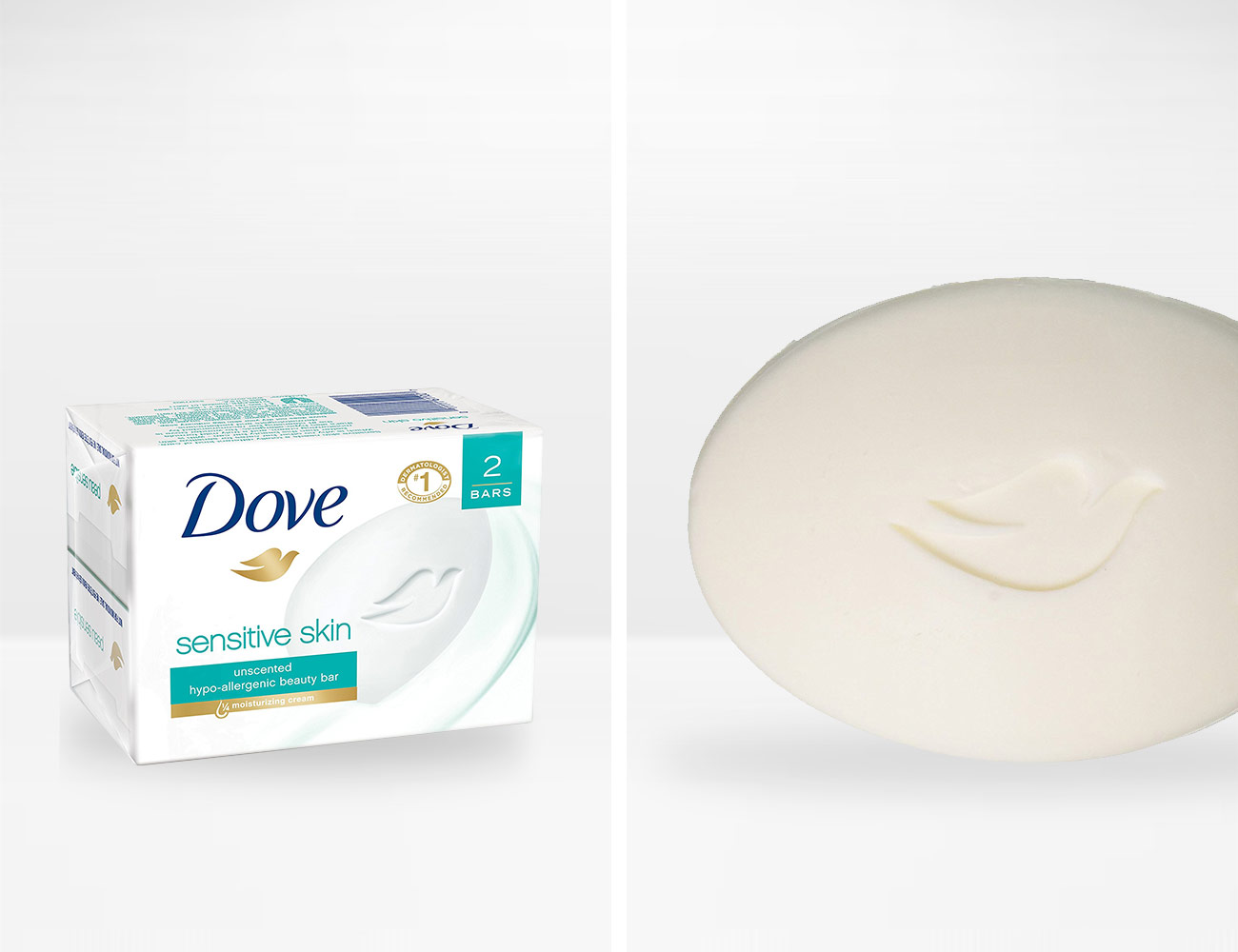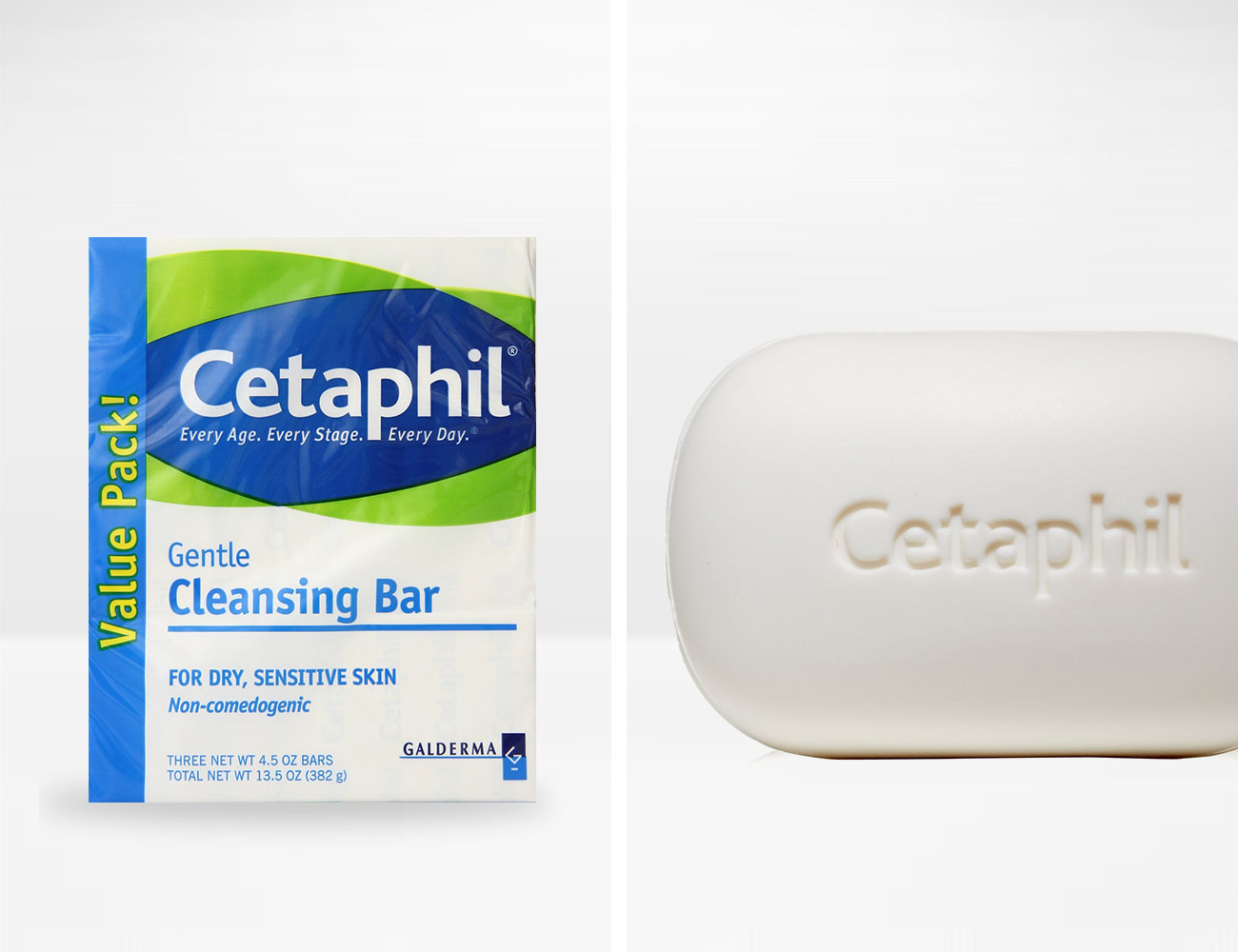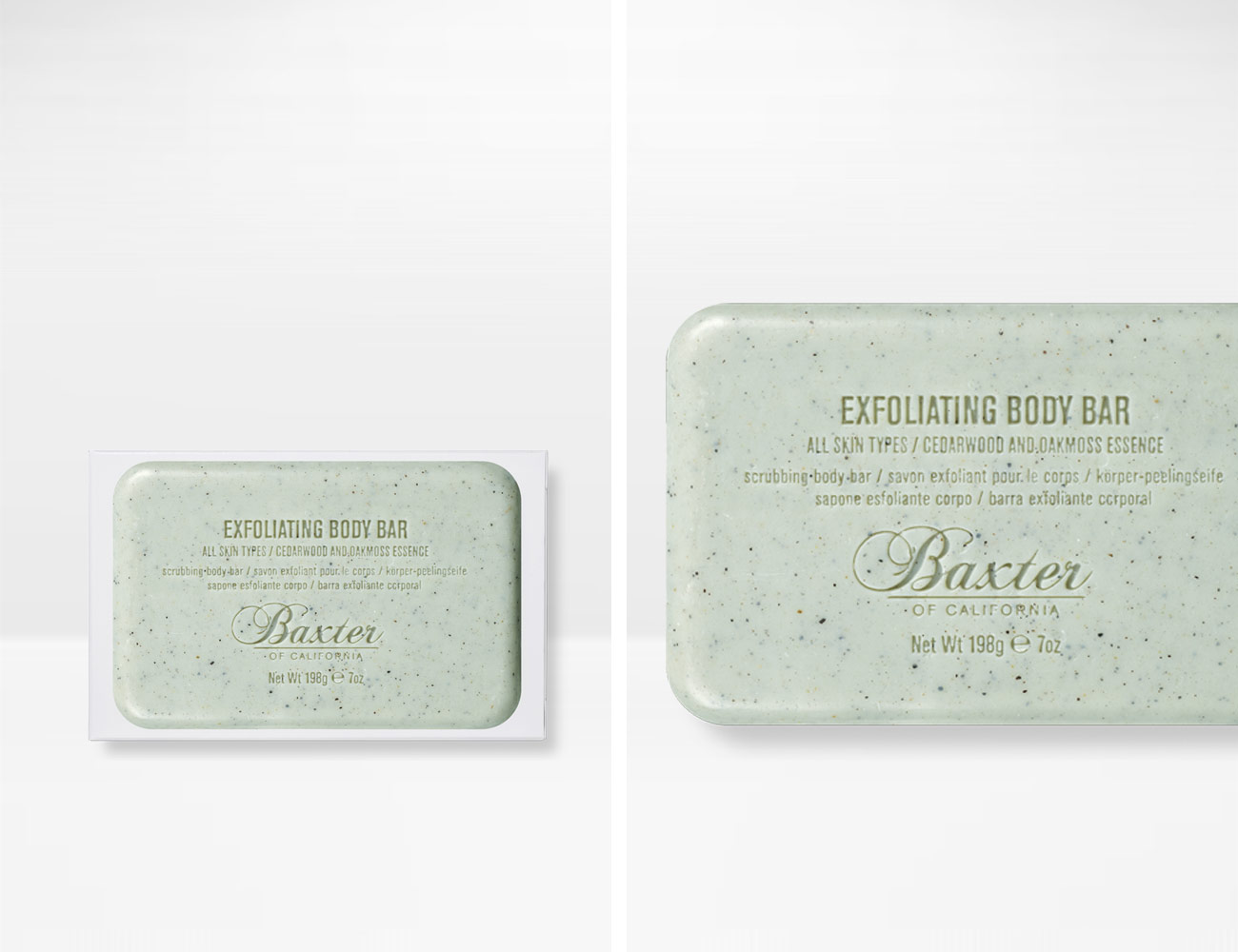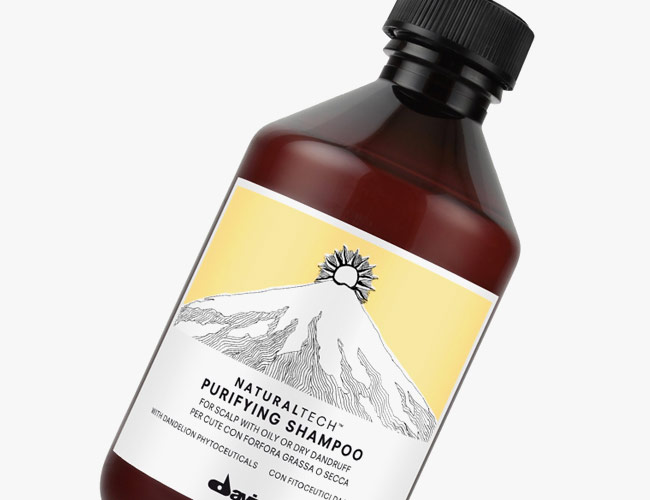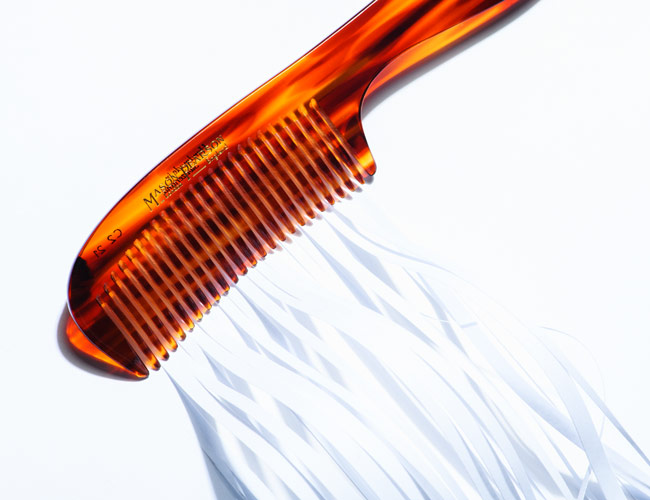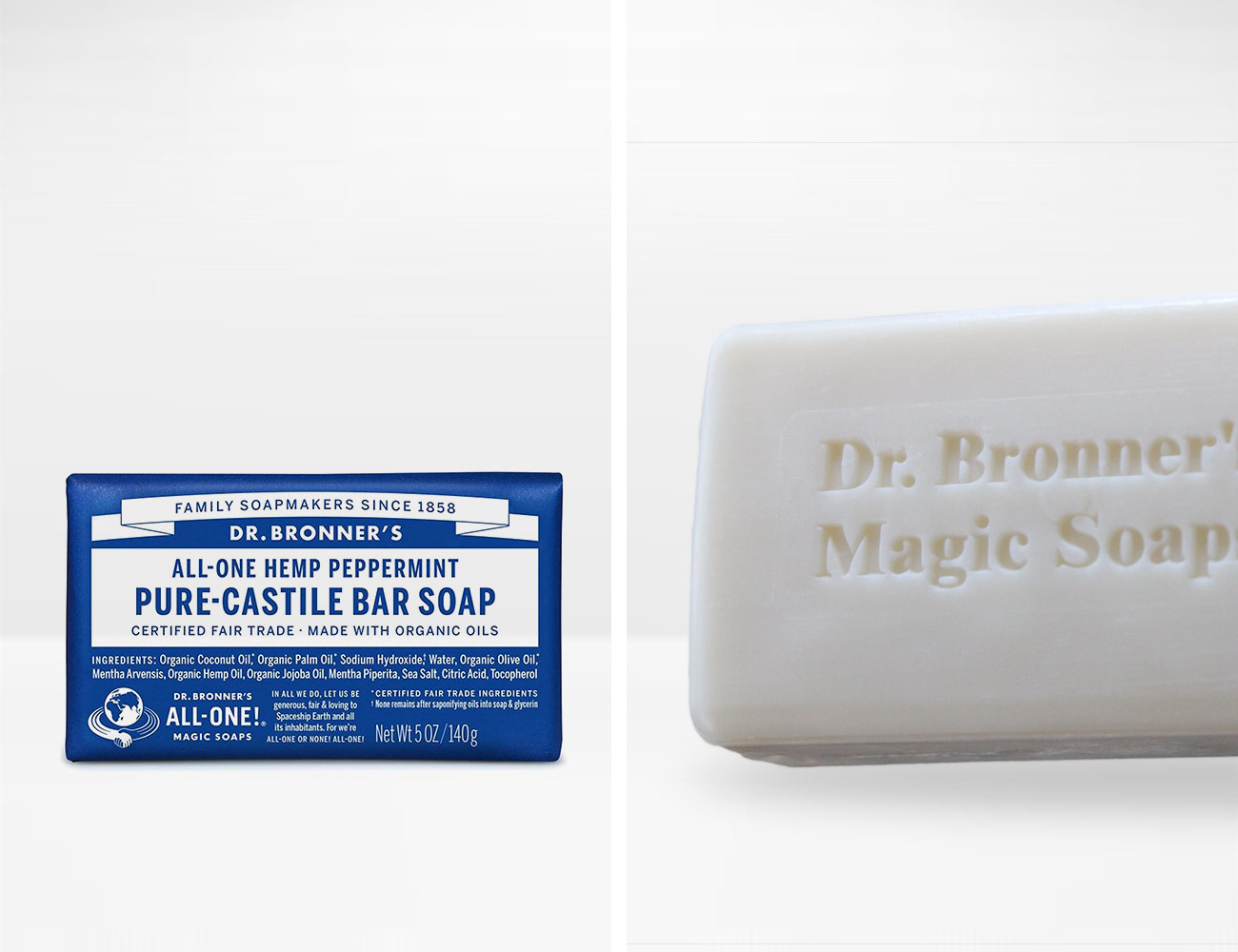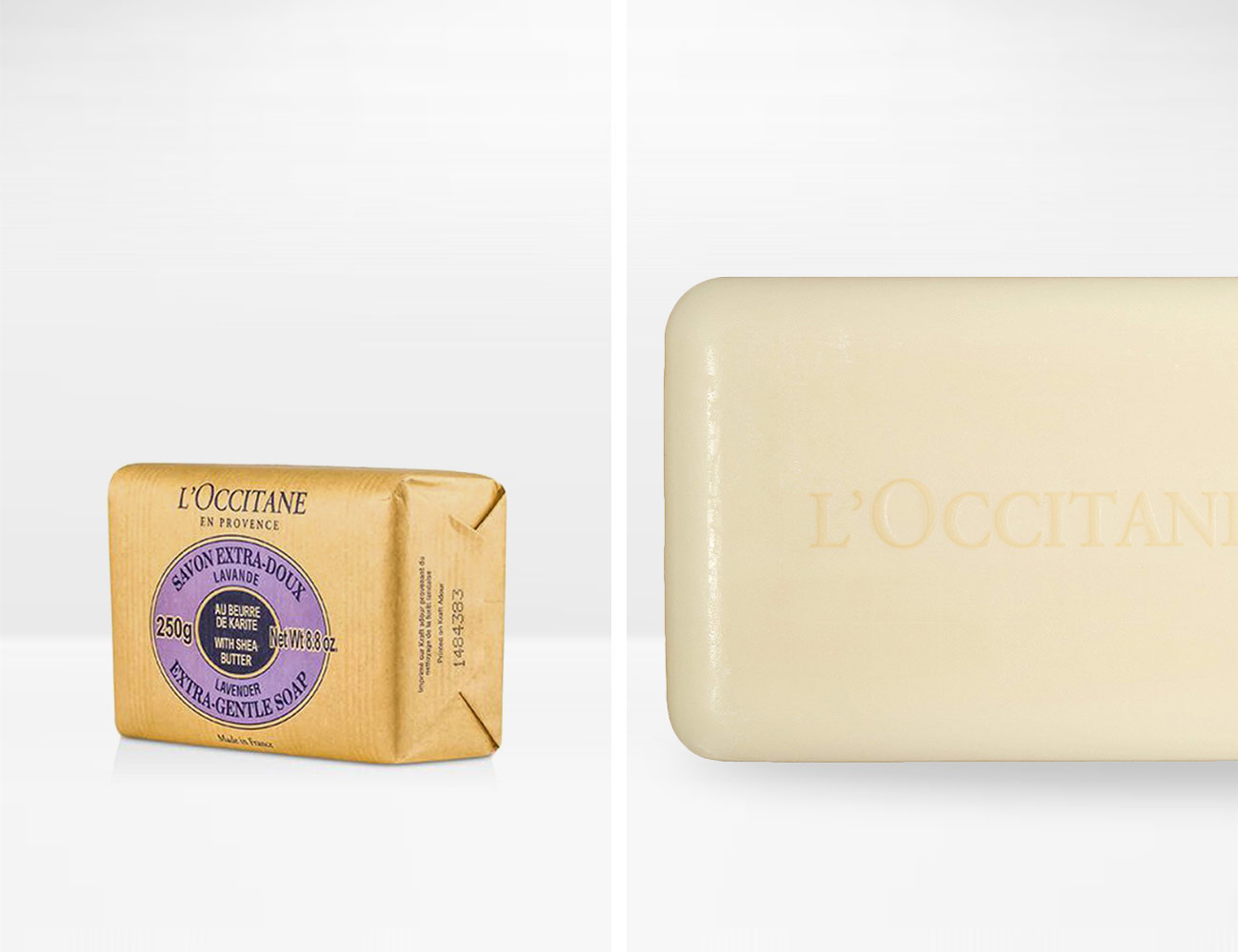This guide explores to the best bars of soap explores everything you need to know before your next trip to the drugstore, including key ingredients to look for and the best bars for different types of skin.
Prefer to skip directly to the picks? Click here.
Editor’s Picks
Best All-Around Bar: Dove Beauty Bar, Sensitive Skin
Verdict: Recommended by many dermatologists, the Dove Beauty Bar has a mild, soapless formula that is both hypoallergenic and unscented. It has a large amount of moisturizing cream and uses mild cleansers — such as sodium lauroyl isethionate — that leave your skin feeling clean and smooth. The bar lathers well and is very affordable.
Best Bar for Sensitive Skin: Cetaphil Gentle-Cleansing Bar
Verdict: This soap-free bar is devoid of harsh detergents known to dry and irritate skin. It cleans and washes off without stripping the skin of natural protective oils or emollients. Founded in 1947, Cetaphil prides itself with creating innovative skincare products. This bar is safe to use with eczema-, rosacea-, acne- and psoriasis-prone skin.
Best Exfoliating Bar: Baxter of California Men’s Exfoliating Body Bar
Verdict: This bar includes pumice jojoba meal and crushed olive seeds, which gently exfoliate dead skin cells. It lathers nicely and hydrates with added glycerin. Not ideal for those with sensitivities to fragrance, it features strong notes of cedar and oakmoss. Made in America, this bar is paraben-free.
If you struggle with dandruff, it’s time to upgrade your shampoo. Graduate from Head and Shoulders to a bottle from Davines, Sachajuan or Philip Kingsley. Read the Story
Introduction
A humble bar of soap is perhaps the most important tool in your grooming regimen. Though often overlooked, soaps come in a staggering array of compositions, and packaging often touts a laundry-list of ingredients. Understanding the best soap to buy starts, first and foremost, by considering your skin type and analyzing the components of a soap to see what will suit your needs.
In technical terms, soap is a salt of a fatty acid. When vegetable or animal fats (triglycerides) are combined with an alkaline solution (e.g. lye), the triglycerides hydrolyze into soap. It seems complex, but soap production dates back thousands of years. The early processes for making soap combined boiled fats with ashes. Soap making became more complex as civilizations grew, and by the middle of the 15th-century, soap making was semi-industrialized in France. The post-Industrialization 19th-century saw the growth of the soap industry, but the next major innovation happened in 1916 when Germany developed synthetic detergents as a response to the shortage of fats due to first World War. By the 1930s, Procter and Gamble developed a process that decreased soap production times to under a day, effectively cutting weeks from the process.
The industrialization of soap created the hard bars you now find at any big-box store or motel. Truth is, many of these conventional soaps are very harsh; they’re very alkaline and contain preservatives, artificial colors and synthetic fragrances that irritate the skin. Fortunately, there is now a wide range of soaps formulated to clean without irritating. While the processes and ingredients differ widely, the result is the same: a solid cleanser you’ll actually enjoy using every day. So before you buy your next bar, research the differences of each and find the bar that is right for your skin type.
Important Terms to Know
Cold-Pressed Soap – This method for producing soap leaves vegetable and essential oils intact while removing lye. It takes considerably longer (four-to-six weeks) to reach a finished product than the industrial hot-pressed method.
Deodorant Soap – These soaps contain antiseptics for bacteria and perfumes to mask odor. They can cause allergic reactions in people with sensitive skin.
Exfoliating Soap – These soaps contain tiny particles that abrade your skin to remove the surface layer of dead cells. For those with sensitive skin, exfoliating soaps can be to harsh and drying.
French Milled Soap – A triple-milled soap.
Glycerin Soap – Soap with a high glycerin content that is recommended for dry or delicate skin for its moisturizing properties.
Hot-pressed Soap – This industrial method for producing soap has a short manufacturing time, but leaves lower concentrations of good ingredients like oils and glycerin.
Milled – A process where soap chips are blended, then compressed, by machinery into bars to ensure that moisture is removed and ingredients are evenly distributed.
Transparent Soap – This is a type of superfatted soap that contains a higher glycerin content. It has a softer consistency and as its name suggests, it’s transparent.
Soapless Soaps – Also called synthetic detergent soap, this is derived from petroleum materials, fatty acids and other materials to be less alkaline and less irritating.
Superfatted Soap – This is a soap with moisturizer added (look for lanolin, mineral oil, olive oil, cocoa butter). Most soaps contain less than two percent fat where superfatted soaps contain between five and 15 percent fat.
Why Does pH Matter?
Your skin is slightly acidic, with a pH of 5.5. Most conventional soaps are alkaline pHs of 9 or higher. This high pH can strip skin of essential lipids and proteins. For those with sensitive skin, this can cause irritation and dryness after washing. Lower pH soaps are better for the skin, but soapless soaps (non-soap cleansers like Dove) are best for those with sensitivities.
Ingredients to Look For
Try your best to stay away from preservatives, chemicals and fragrances (sometimes labeled as “parfum”). Look for natural moisturizers like lanolin, mineral oil, olive oil and cocoa butter. As far as cleansers, there’s lauroyl isethionate, a mild and safe surfactant derived from coconuts.
If you have sensitive skin, keep an eye out for glycerin (also called glycerol), a simple polyol compound found in triglycerides. In many mass-market soaps, glycerin is removed so that the resulting soap is harder and longer-lasting. Glycerin is hygroscopic, which is great for your skin but, if the soap is not properly stored, it has potential to dissolve.
There are some grooming tools every man should own; a good comb is at the top of the list. Choose from Kent, Garrett Wade and more. Read the Story
The Best Bars of Soap
Best All-Around Bar: Dove Beauty Bar, Sensitive Skin
Verdict: Recommended by many dermatologists, the Dove Beauty Bar has a mild, soapless formula that is both hypoallergenic and unscented. It has a large amount of moisturizing cream and uses mild cleansers — Sodium Lauroyl Isethionate, Sodium Palmitate, Lauric Acid and Sodium Isethionate, among others — that leave your skin feeling clean and smooth. The bar lathers well and is the most affordable on this list.
Best Bar for Sensitive Skin: Cetaphil Gentle-Cleansing Bar
Verdict: This soap-free bar is devoid of harsh detergents known to dry and irritate skin. It cleans and washes off without stripping the skin of natural protective oils or emollients. Founded in 1947, Cetaphil prides itself with creating innovative skincare products. This bar is safe to use with eczema-, rosacea-, acne- and psoriasis-prone skin.
Best All-Natural Bar: Dr. Bronner’s Organic Castile Bar Soap, Peppermint
Verdict: This Castile soap is made from a range of vegetable-based oils including coconut oil, palm oil, olive oil and hemp oil. It is USDA certified organic and uses Fair Trade ingredients. The absence of synthetic ingredients is a plus for those with sensitivities, but the pH of this soap (around 9) may be irritating to those with sensitive skin. The natural peppermint scent makes for an invigorating wash both in the shower and as a hand-soap.
Best Moisturizing Bar: L’Occitane Shea Butter Extra Gentle Soap
Verdict: Utilizing a traditional French recipe, this moisturizing bar from L’Occitane lathers nicely and softens the skin with use. The soap has a natural vegetable-oil base that’s complimented with hydrating shea butter and glycerin. Ideal for a wide range of skin types, the bar is paraben-free and carries a stimulating scent of lemon and rosemary.
Best Exfoliating Bar: Baxter of California Men’s Exfoliating Body Bar
Verdict: This bar includes pumice jojoba meal and crushed olive seeds, which gently exfoliate dead skin cells. It lathers nicely and hydrates with added glycerin. Not ideal for those with sensitivities to fragrance, it features strong notes of cedar and oakmoss. Made in America, this bar is paraben-free.
Best Smelling Bar: Byredo Sunday Cologne Soap
Verdict: If fragrance is important, Byredo’s soaps are imbued with a range of unique compelling scents. Made in France, the Sunday Cologne glycerin soap has notes of bergamot, vetiver and star anise — a versatile combination that is appropriate for any day of the week. Instead of investing in one of Byredo’s luxury spray scents, you can have a more subtle version in soap form, formulated for daily use.
Best Detox Bar: Erno Laszlo Sea Mud Deep Cleansing Bar
Verdict: For those who need to give their skin a little extra love, this bar from Erno Laszlo has it all. It contians Dead Sea Mud — with 26 minerals — which detoxifies and exfoliates your skin. This bar also has moisturizing properties thanks to added glycerin. Made in the U.S., it’s free of phthalates, parabens, sulfates and mineral oil.
These deodorants are a step above the drug store variety. Read the Story

